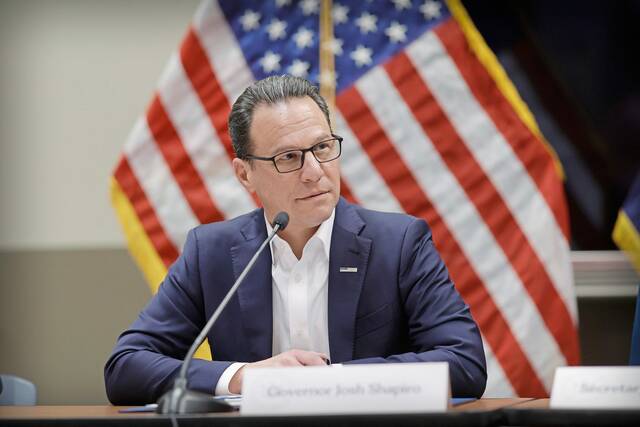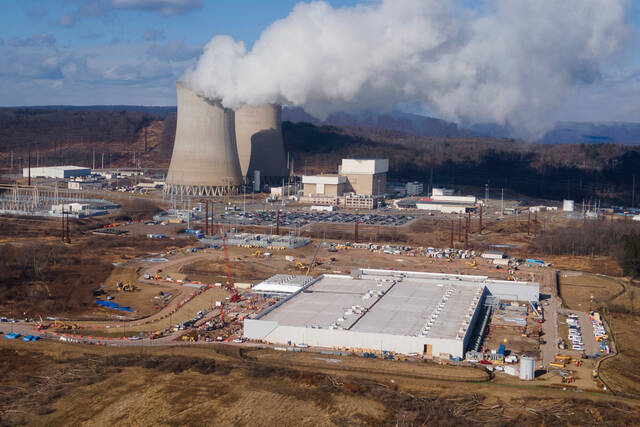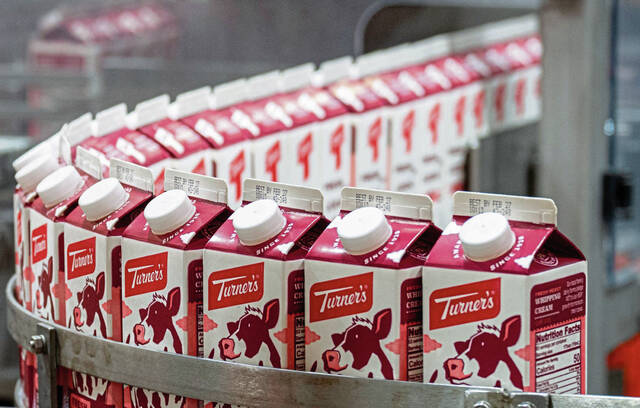Faced with chronically low milk prices, some Pennsylvania dairy farmers are calling for reforms in the way those prices are set.
The U.S. system for determining what dairy farmers are paid for their product is notoriously complex — and has become even more so under the influence of global markets and recent trade wars.
“Dairy farmers are hurting right now,” said Pennsylvania Farm Bureau President Rick Ebert, a dairy farmer in Derry Township. “We’re no longer tied to just what we produce in the United States — we’re dependent on export markets. There’s a lot of world dairy products out there, which affects our price also.”
Ebert is attending the annual convention of the American Farm Bureau Federation in New Orleans, where delegates debated a resolution calling for further study of the American pricing system.
“I think it needs (to be) modernized,” he said. “Throughout the years, there’s been some updates to it but not really a complete look at it.”
The resolution calls for the formation of a committee that would “take a hard look at the federal order system and how milk is priced and see what needs (to be) updated,” Ebert said.
A similar proposal is part of an online petition being circulated by the Progressive Agriculture Organization, or Pro-Ag, a group of dairy farmers based in Wyoming County.
The petition on the website Change.org calls for, among other things, a new pricing formula that factors in the dairy farmers’ cost of production, and a $20 per hundredweight floor price for milk used to manufacture dairy products.
“Actions must be taken to preserve our remaining dairy farms,” the petition says.
Wyoming County dairy farmer Arden Tewksbury, manager of Pro-Ag, said such measures would add security and stability to the dairy industry at a time when dairy farmers often feel unsupported by both consumers and the government.
“We are insisting that the Congress and USDA have immediate hearings to discuss what’s going on with dairy farmers because we’re losing them left and right. Something’s got to be done,” Tewksbury said.
According to Pro-Ag, the number of dairy farmers in the United States has declined from nearly 360,000 in 1981 to the present level of about 40,000. Pennsylvania, the nation’s sixth-largest dairy producer, lost 200 dairy farms in 2016 and 2017, and currently has about 6,570 dairy farms, according to the Center for Dairy Excellence.
The travails of dairy farmers continue to be driven by a glut of fluid milk, declining demand, low prices and the vagaries of international markets, forcing some producers to sell at a loss or consider dairy alternatives such as cheese, yogurt and ice cream.
In 2014, milk prices — what the market was willing to pay the farmer — were at their highest recorded level in Pennsylvania. That price dropped 28 percent in 2015 and has continued to go down, according to PennState Extension.
Milk is typically priced and sold in 100-pound increments (hundredweight), which equals about 12 gallons.
The price farmers receive for raw milk is largely determined by market forces that are influenced by federal and state dairy programs. Under most of these programs, the minimum farm milk price is based on the value of the products made from it — fluid milk, “soft” products such as ice cream, “hard” products such as cheese and “dry” products such as nonfat dry milk, according to the International Dairy Foods Association.
In Pennsylvania, price regulation of milk is covered in part by Federal Milk Marketing Orders, or FMMOs, and partly by a state order, according to the Congressional Research Service. Dating back to the 1930s, the FMMO system is the mechanism by which the government sets the minimum price that producers receive for their milk.
The Pro-Ag petition calls for a new pricing formula that takes into account dairy farmers’ cost of production, but Ebert said that would be difficult because such costs vary widely based on the size of the farm, debt load and input costs.
“We’ve got to get a different pricing formula for dairy farmers,” Tewksbury said. “The dairy farmers get no consideration for their costs, yet processors get a credit for their costs.”
Ebert said the Farm Bureau does not support the $20 price floor proposal because it would be tantamount to price fixing.
The Pro-Ag petition also calls on U.S. Agriculture Secretary Sonny Perdue to conduct milk hearings across the country, “giving our average dairy farmers an opportunity to tell you how deplorable conditions are on the majority of our dairy farms.”
Although things look bleak, a recent report by PennState Extension said milk prices may see a boost in the fall.
Stephen Huba is a Tribune-Review staff writer. You can contact Stephen at 724-850-1280, shuba@tribweb.com or via Twitter @shuba_trib.








